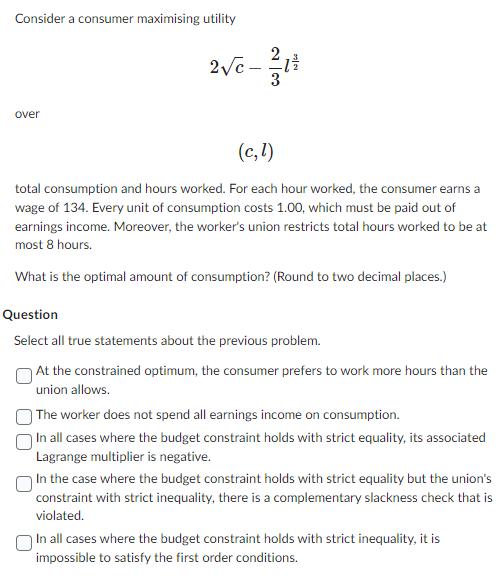Answered step by step
Verified Expert Solution
Question
1 Approved Answer
Consider a consumer maximising utility over 2c - 2/1 3 (c,l) total consumption and hours worked. For each hour worked, the consumer earns a

Consider a consumer maximising utility over 2c - 2/1 3 (c,l) total consumption and hours worked. For each hour worked, the consumer earns a wage of 134. Every unit of consumption costs 1.00, which must be paid out of earnings income. Moreover, the worker's union restricts total hours worked to be at most 8 hours. What is the optimal amount of consumption? (Round to two decimal places.) Question Select all true statements about the previous problem. At the constrained optimum, the consumer prefers to work more hours than the union allows. The worker does not spend all earnings income on consumption. In all cases where the budget constraint holds with strict equality, its associated Lagrange multiplier is negative. In the case where the budget constraint holds with strict equality but the union's constraint with strict inequality, there is a complementary slackness check that is violated. In all cases where the budget constraint holds with strict inequality, it is impossible to satisfy the first order conditions.
Step by Step Solution
★★★★★
3.44 Rating (163 Votes )
There are 3 Steps involved in it
Step: 1
Conclusion The optimal amount of ...
Get Instant Access to Expert-Tailored Solutions
See step-by-step solutions with expert insights and AI powered tools for academic success
Step: 2

Step: 3

Ace Your Homework with AI
Get the answers you need in no time with our AI-driven, step-by-step assistance
Get Started


